About the Symposium
Symposium on Regenerative Engineering
April 30th and May 1, 2024
Simpson Querrey Auditorium and Atrium
The 3rd Symposium on Regenerative Engineering, the largest in the history of the Center for Advanced Regenerative Engineering (CARE), has now come to a successful conclusion. Thank you to all of our invited faculty speakers, our T32 Training Program speakers, CURE Club members, sponsors, and audience from around the Chicago area and beyond for contributing your time and expertise.
Six internationally-recognized speakers headlined our two day program, including members of the U.S. and Canadian National Academies with expertise in state-of-the-art regenerative technologies for musculoskeletal tissues, immunology, and other organs. Dr. Richard Tran (Acuitive Technologies) opened the program with a discussion of his team’s work in translating citrate-based biomaterials into a variety of specialized orthopedic devices. Dr. Anthony Atala (Wake Forest University) highlighted his lab’s research in urology-focused 3D bioprinting and stem cell therapy, work being used for reconstructing organs. Dr. Cato Laurencin (University of Connecticut) discussed his development of the Synthetic Artificial Stem Cell, alongside his work expanding the field of regenerative engineering itself through training and outreach programs. The final faculty speaker on day one, Dr. Ramille Shah (Dimension Inx) highlighted her company’s Fluffy-PLG 3D printable biomaterials platform designed to restore tissue and organ function lost to diabetes, liver damage, and other injuries. Dr. Milica Radisic (University of Toronto) addressed the difficulties of vascularization in tissue-engineered constructs to begin Day Two, an issue addressed through her team’s development of the AngioChip microfluidic scaffold. Dr. Julia Babensee (Georgia Institute of Technology and Emory University) addressed the need for controlling host inflammatory and immune responses in regenerative medicine. Introducing the audience to three biomaterials based approaches to immunomodulation, Dr. Babensee demonstrated their applications in treatment of tumors, diabetes, and other autoimmune diseases. A speaker panel at the end of Day One allowed each speaker to share their thoughts on the present and future of the field of regenerative engineering.
Alongside our faculty speakers, CARE was proud to host an expanded group of T32 Training Grant students, including Jonathan Diaz and Patrick Ralph of Wake Forest University, Steven Toro of the University of Connecticut, and Mary Kelly, Nikita John, Rachel Daso, and Rebecca Riter of our own RE-Training Program. Participants in these NIH-funded training programs shared their research with the symposium audience throughout the event, and discussed their experiences as part of a student panel at the end of Day Two. Taylor Brown, and alum of the RE-Training Program, shared her experiences in her RE-Practice School internship at Dimension Inx. With several speakers highlighting the importance of startups in ensuring their research reaches widespread use, Taylor gave audience members a perspective on how work at a startup has impacted her own work and professional goals. Many of the trainees also presented posters, 22 of which were shown in the event space throughout the event.
Three teams competed in this year’s Competition for Undergraduate Regenerative Engineering (CURE) Club program, with each team showcasing a different approach to encouraging wound healing. The Bioactive Glass team, consisting of Ophelia Tong, Angel Guo, and Adam Dipasquale took home first place in a strong competition.
CARE is proud to feature such a strong selection of regenerative engineering research, from some of the most accomplished researchers in the field to emerging scientists from across the country.
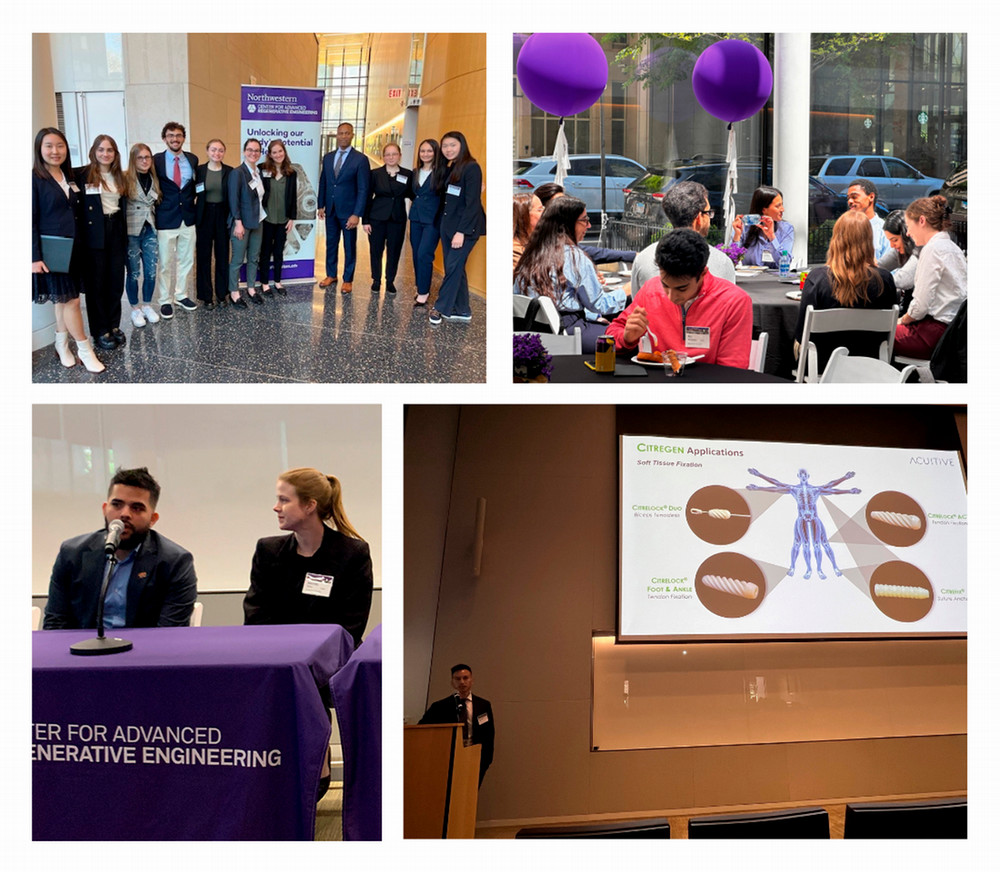
Conference Schedule
| Tuesday, April 30th, 2024 | |
|---|---|
| 7:30 AM - 8:30 AM | Registration and Breakfast |
| 8:30 AM - 8:45 AM | Opening Remarks |
|
8:45 AM - 9:30 AM
|
Citregen Orthopedic Biomaterials Speaker: Richard Tran, Ph.D., Acuitive Technologies |
| 9:30 AM - 10:05 AM | RE-Training Program Presentations |
| 10:05 AM - 10:20 AM | Break, Poster Viewing, Research Lab Tech Showcase |
|
10:20 AM - 11:05 AM
|
Regenerative Medicine: Tissue Engineering, Cell Therapies, and 3D Printing Speaker: Anthony Atala, M.D., Wake Forest University |
| 11:05 AM - 11:40 AM | Studies in Translational Regenerative Medicine Training Program Presentations |
| 11:40 AM - 1:15 PM | Lunch, Poster Viewing, Research Lab Tech Showcase |
|
1:15 PM - 2:00 PM
|
Regenerative Engineering: Complex Tissue Regeneration Speaker: Cato T. Laurencin, M.D., Ph.D., University of Connecticut |
| 2:00 PM - 2:20 PM | Regenerative Engineering of Musculoskeletal Tissues: A Convergence Training Program Presentation |
|
2:20 PM - 3:05 PM
|
Paving the Way for the Use of 3D Printable Biomaterials in Tissue Therapeutics Speaker: Ramille Shah, Ph.D., Dimension Inx |
| 3:05 PM - 3:20 PM | Break, Poster Viewing Research Lab Tech Showcase |
| 3:20 PM - 4:00 PM | CURE Club Competition Presentations |
| 4:00 PM - 4:40 PM | Panel Discussion with Speakers |
| 4:40 PM - 5:00 PM | Day 1 Closing Remarks, CURE Award Presentations |
| 5:00 PM - 6:00 PM | Reception, Poster Viewing, Research Lab Tech Showcase |
| Wednesday, May 1st, 2024 | |
|---|---|
| 7:30 AM - 8:30 AM | Registration and Breakfast |
| 8:30 AM - 8:35 AM | Welcome |
|
8:35 AM - 9:20 AM
|
Advances in vascularization of cardiac tissues and hearts-on-a-chip Speaker: Milica Radisic, Ph.D., University of Toronto |
| 9:20 AM - 9:55 AM | RE-Training Program Presentations |
| 9:55 AM - 10:15 AM | Break, Poster Viewing, Research Lab Tech Showcase |
|
10:15 AM - 11:00 AM
|
Biomaterial-Based Immunomodulation Through Dendritic Cells Speaker: Julia Babensee, Ph.D., Georgia Institute of Technology and Emory University |
|
11:00 AM - 11:15 AM
|
RE Practice School Experience Taylor Brown |
| 11:15 AM - 11:50 AM | Panel Discussion with PhD Trainees |
| 11:50 AM - 12:00 PM | Symposium Closing Remarks |
Invited Speakers
Anthony Atala, MD
Boyce Professor and Chair of Urology; G. Link Professor and Director, Wake Forest Institute for Regenerative Medicine, Wake Forest University
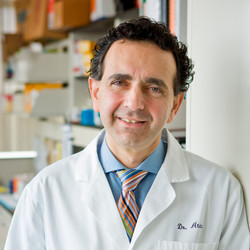 Anthony Atala, MD, is the G. Link Professor and Director of the Wake Forest Institute for Regenerative Medicine and the W. Boyce Professor and Chair of the Department of Urology at Wake Forest University. His work focuses on bioprinting and growing human cells, tissues and organs. Sixteen applications of technologies developed in Dr. Atala's laboratory have been used clinically in human patients.
Anthony Atala, MD, is the G. Link Professor and Director of the Wake Forest Institute for Regenerative Medicine and the W. Boyce Professor and Chair of the Department of Urology at Wake Forest University. His work focuses on bioprinting and growing human cells, tissues and organs. Sixteen applications of technologies developed in Dr. Atala's laboratory have been used clinically in human patients.
Dr. Atala was elected to the Institute of Medicine (now the National Academy of Medicine), to the National Academy of Inventors as a Charter Fellow, and to the American Institute for Medical and Biological Engineering. Dr. Atala is a recipient of the US Congress funded Christopher Columbus Foundation Award, bestowed on a living American who is currently working on a discovery that will significantly affect society; the World Technology Award in Health and Medicine, for achieving significant and lasting progress; the Edison Science/Medical Award; the Fast Company World Changing Ideas Award; the R&D Innovator of the Year Award; the Smithsonian Ingenuity Award, and the Jacobson Innovation Award of the American College of Surgeons for pioneering work in regenerative medicine.
Dr. Atala’s work was listed twice as Time Magazine’s top 10 medical breakthroughs of the year, and as one of 5 discoveries that will change the future of organ transplants. Dr. Atala’s work was ranked by the Project Management Institute as one of the top 10 most impactful biotech projects of the past 50 years. Dr. Atala was named by Scientific American as one of the world’s most influential people in biotechnology, by U.S. News & World Report as one of 14 Pioneers of Medical Progress in the 21st Century, by Life Sciences Intellectual Property Review as one of 50 key influencers in the life sciences intellectual property arena, and by Nature Biotechnology as one of the top 10 translational researchers in the world.
Dr. Atala has led or served several national professional and government committees, including the National Institutes of Health working group on Cells and Developmental Biology, the National Institutes of Health Bioengineering Consortium, and the National Cancer Institute’s Advisory Board. He was a Founder of the Tissue Engineering Society, the Regenerative Medicine Society, the Regenerative Medicine Foundation, the Alliance for Regenerative Medicine, the Regenerative Medicine Development Organization, the Regenerative Medicine Manufacturing Society, and the Regenerative Medicine Manufacturing Consortium. He serves as Chair of the Board of Regents of the American College of Surgeons.
Dr. Atala works with several journals and serves in various roles, including Editor-in-Chief of two journals, Stem Cells Translational Medicine and BioPrinting. He is the editor of 26 books, has published more than 800 journal articles and has applied for or received over 300 national and international patents.
Julia Babensee, PhD
Associate Professor, Wallace H. Coulter Department of Biomedical Engineering, Georgia Institute of Technology and Emory University
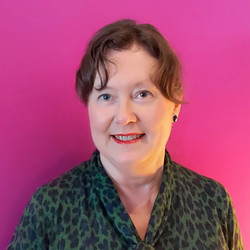 Dr. Babensee is an Associate Professor in the Wallace H. Coulter Department of Biomedical Engineering at the Georgia Tech and Emory University. Her research program is in immunoengineering using biomaterials. She is a fellow of the 2008 College of Fellows of the American Institute for Medical and Biological Engineering, and of the Fellow Biomaterials Science and Engineering (FBSE), International Union of Societies for Biomaterials Science and Engineering (IUSBSE). She directs the Georgia Tech NIH T32 training program “Research Training Program in ImmunoEngineering”. Her awards include Society for Biomaterials’ 2005 Young Investigator Award and the 2022 Clemson Award for Basic Research.
Dr. Babensee is an Associate Professor in the Wallace H. Coulter Department of Biomedical Engineering at the Georgia Tech and Emory University. Her research program is in immunoengineering using biomaterials. She is a fellow of the 2008 College of Fellows of the American Institute for Medical and Biological Engineering, and of the Fellow Biomaterials Science and Engineering (FBSE), International Union of Societies for Biomaterials Science and Engineering (IUSBSE). She directs the Georgia Tech NIH T32 training program “Research Training Program in ImmunoEngineering”. Her awards include Society for Biomaterials’ 2005 Young Investigator Award and the 2022 Clemson Award for Basic Research.
Cato Laurencin, MD, PhD
University Professor, Albert and Wilda Van Dusen Distinguished Professor of Orthopaedic Surgery, Professor of Chemical and Biomolecular Engineering, Professor of Materials Science and Engineering, Professor of Biomedical Engineering, The University of Connecticut
Director, The Raymond and Beverly Sackler Center for Biomedical, Biological, Physical and Engineering Sciences; Director, The Cato T. Laurencin Institute for Regenerative Engineering; Chief Executive Officer, Connecticut Institute for Clinical and Translational Science
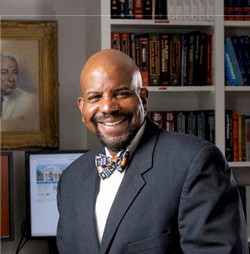 Cato T. Laurencin, M.D., Ph.D. is the University Professor at the University of Connecticut (one of only two at the school). He is Professor of Chemical and Biomolecular Engineering, Professor of Materials Science and Engineering, and Professor of Biomedical Engineering at UConn. He is also the Albert and Wilda Van Dusen Distinguished Endowed Professor of Orthopaedic Surgery. He is the Chief Executive Officer of The Cato T. Laurencin Institute for Regenerative Engineering, an Institute named in his honor.
Cato T. Laurencin, M.D., Ph.D. is the University Professor at the University of Connecticut (one of only two at the school). He is Professor of Chemical and Biomolecular Engineering, Professor of Materials Science and Engineering, and Professor of Biomedical Engineering at UConn. He is also the Albert and Wilda Van Dusen Distinguished Endowed Professor of Orthopaedic Surgery. He is the Chief Executive Officer of The Cato T. Laurencin Institute for Regenerative Engineering, an Institute named in his honor.
Dr. Laurencin earned his B.S.E. in Chemical Engineering from Princeton University, his Ph.D. in Biochemical Engineering/Biotechnology from the Massachusetts Institute of Technology where he was a Hugh Hampton Young Fellow, and his M.D., from the Harvard Medical School, where he graduated Magna Cum Laude.
Dr. Laurencin is the pioneer of the field of Regenerative Engineering. He is an expert in biomaterials science, stem cell technology, biophysics and nanotechnology and has worked at the Convergence of these areas of research. In receiving the Spingarn Medal from the NAACP, he was named as the world’s foremost engineer-physician-scientist. He is the first individual to receive both the Simon Ramo Founders’ Award (highest honor) of the National Academy of Engineering and the Walsh McDermott Medal from the National Academy of Medicine. The American Association for the Advancement of Science awarded Dr. Laurencin the Philip Hauge Abelson Prize given ‘for signal contributions to the advancement of science in the United States.’ In recognition of his breakthrough achievements in Regenerative Engineering worldwide, the American Institute of Chemical Engineers created the Cato T. Laurencin Regenerative Engineering Founder’s Award.
Dr. Laurencin is an inventor. He was named 2023 Inventor of the Year by the Intellectual Property Owners Foundation. Former winners include the inventors of CRISPR technology and mRNA technology. He received the 2024 Kathryn S. Hach Award for Entrepreneurial Success from the American Chemical Society. He is the recipient of the National Medal of Technology and Innovation, America’s highest honor for technical achievement, awarded by President Barack Obama in ceremonies at the White House.
Dr. Laurencin is one of very few who have been elected a member to the National Academy of Engineering, the National Academy of Medicine and the National Academy of Sciences, and have been elected a fellow of the National Academy of Inventors, and the American Academy of Arts and Sciences.
Milica Radisic, PhD
Professor of Biomedical Engineering and Chemical Engineering, University of Toronto; Tier 1 Canada Research Chair in Organ-on-a-Chip Engineering; Senior Scientist, Toronto General Research Institute
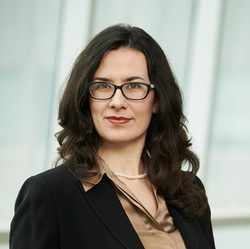 Dr. Milica Radisic is a Professor at the University of Toronto, Tier 1 Canada Research Chair in Organ-on-a-Chip Engineering and a Senior Scientist at the Toronto General Research Institute. She is also Director of the NSERC CREATE Training Program in Organ-on-a-Chip Engineering & Entrepreneurship and a co-lead for the Center for Research and Applications in Fluidic Technologies. She is a Fellow of the Royal Society of Canada-Academy of Science, Canadian Academy of Engineering, the American Institute for Medical & Biological Engineering, Tissue Engineering & Regenerative Medicine Society as well as Biomedical Engineering Society. She was a recipient of the MIT Technology Review Top 35 Under 35, Queen Elizabeth II Diamond Jubilee Medal, NSERC E.W.R Steacie Fellowship, YWCA Woman of Distinction Award, Killam Fellowship, Acta Biomaterialia Silver Medal, and Humboldt Research Award to name a few. Her research focuses on organ-on-a-chip engineering and development of new biomaterials that promote healing and attenuate scarring. She developed new methods to mature iPSC derived cardiac tissues using electrical stimulation. She is an Executive Editor for ACS Biomaterials Science & Engineering, Senior Consulting Editor for the Journal of Molecular and Cellular Cardiology, a reviewing editor for eLife and a member of the editorial board of another 8 journals. She served on the Board of Directors for Ontario Society of Professional Engineers, Canadian Biomaterials Society and McMaster University Alumni Association. She organized Keystone, EMBO and ECI conferences and numerous sessions at TERMIS and BMES meetings. She served as a Scientific Officer for the Canadian Institutes of Health Research and member of review panels for CIHR, NIH and Israel Ministry of Education. She is the Chair of Investment Committee for Serbia Innovation Fund. She is a co-founder of two companies TARA Biosystems (acquired by Valo Health), that uses human engineered heart tissues in drug development and safety testing, and Quthero that advances regenerative hydrogels. Her work has been presented in over 260 publications, garnering over 20,000 citations with an h-index of 71. Her publications appeared in Cell, Nature Materials, Nature Methods, Nature Protocols, Nature Communications, PNAS etc.
Dr. Milica Radisic is a Professor at the University of Toronto, Tier 1 Canada Research Chair in Organ-on-a-Chip Engineering and a Senior Scientist at the Toronto General Research Institute. She is also Director of the NSERC CREATE Training Program in Organ-on-a-Chip Engineering & Entrepreneurship and a co-lead for the Center for Research and Applications in Fluidic Technologies. She is a Fellow of the Royal Society of Canada-Academy of Science, Canadian Academy of Engineering, the American Institute for Medical & Biological Engineering, Tissue Engineering & Regenerative Medicine Society as well as Biomedical Engineering Society. She was a recipient of the MIT Technology Review Top 35 Under 35, Queen Elizabeth II Diamond Jubilee Medal, NSERC E.W.R Steacie Fellowship, YWCA Woman of Distinction Award, Killam Fellowship, Acta Biomaterialia Silver Medal, and Humboldt Research Award to name a few. Her research focuses on organ-on-a-chip engineering and development of new biomaterials that promote healing and attenuate scarring. She developed new methods to mature iPSC derived cardiac tissues using electrical stimulation. She is an Executive Editor for ACS Biomaterials Science & Engineering, Senior Consulting Editor for the Journal of Molecular and Cellular Cardiology, a reviewing editor for eLife and a member of the editorial board of another 8 journals. She served on the Board of Directors for Ontario Society of Professional Engineers, Canadian Biomaterials Society and McMaster University Alumni Association. She organized Keystone, EMBO and ECI conferences and numerous sessions at TERMIS and BMES meetings. She served as a Scientific Officer for the Canadian Institutes of Health Research and member of review panels for CIHR, NIH and Israel Ministry of Education. She is the Chair of Investment Committee for Serbia Innovation Fund. She is a co-founder of two companies TARA Biosystems (acquired by Valo Health), that uses human engineered heart tissues in drug development and safety testing, and Quthero that advances regenerative hydrogels. Her work has been presented in over 260 publications, garnering over 20,000 citations with an h-index of 71. Her publications appeared in Cell, Nature Materials, Nature Methods, Nature Protocols, Nature Communications, PNAS etc.
Ramille Shah, PhD
Co-Founder and Chief Scientific Officer, Dimension Inx, LLC; Associate Professor, Department of Bioengineering, University of Illinois at Chicago
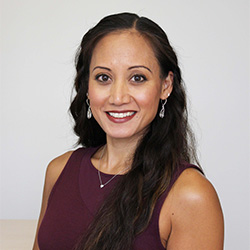 Prof. Ramille Shah is the co-Founder and Chief Scientific Officer of Dimension Inx and an Associate Professor in the Department of Biomedical Engineering at the University of Illinois at Chicago (UIC). She has over 25 years' experience in the biomaterials and tissue engineering fields and in the last 10 years has established herself as a renowned leader in materials development for 3D-printing. Her work relating to everything from ovary, liver, and musculoskeletal tissue biofabrication to new methods for printing metals, and Martian and lunar dust has led to over a dozen issued and pending patents, high impact publications, and has been featured in Forbes Magazine, Crain’s Chicago Business Magazine (also named Crain’s 40 Under 40), Fox 32 News, National Public Radio, the National Science Foundation’s Science Nation News, and other national and international media outlets. In 2016, Prof. Shah co-founded Dimension Inx to facilitate the translation and commercialization of the 3D-printable biomaterial technologies developed in her lab. As Chief Scientific Officer and Head of R&D of Dimension Inx, she leads the R&D strategy and supports product development, regulatory, and quality management activities. Prof. Shah was recognized by the American Institute for Medical and Biological Engineering for her “outstanding contributions to bioengineering and promoting women entrepreneurship through commercialization of innovative medical devices that fill unmet clinical needs”. Prof. Shah earned her B.S. in Materials Science and Engineering (MSE) at Northwestern University and her Ph.D. in MSE with a specialty in Biomaterials from the Massachusetts Institute of Technology.
Prof. Ramille Shah is the co-Founder and Chief Scientific Officer of Dimension Inx and an Associate Professor in the Department of Biomedical Engineering at the University of Illinois at Chicago (UIC). She has over 25 years' experience in the biomaterials and tissue engineering fields and in the last 10 years has established herself as a renowned leader in materials development for 3D-printing. Her work relating to everything from ovary, liver, and musculoskeletal tissue biofabrication to new methods for printing metals, and Martian and lunar dust has led to over a dozen issued and pending patents, high impact publications, and has been featured in Forbes Magazine, Crain’s Chicago Business Magazine (also named Crain’s 40 Under 40), Fox 32 News, National Public Radio, the National Science Foundation’s Science Nation News, and other national and international media outlets. In 2016, Prof. Shah co-founded Dimension Inx to facilitate the translation and commercialization of the 3D-printable biomaterial technologies developed in her lab. As Chief Scientific Officer and Head of R&D of Dimension Inx, she leads the R&D strategy and supports product development, regulatory, and quality management activities. Prof. Shah was recognized by the American Institute for Medical and Biological Engineering for her “outstanding contributions to bioengineering and promoting women entrepreneurship through commercialization of innovative medical devices that fill unmet clinical needs”. Prof. Shah earned her B.S. in Materials Science and Engineering (MSE) at Northwestern University and her Ph.D. in MSE with a specialty in Biomaterials from the Massachusetts Institute of Technology.
Richard Tran, PhD
Vice President, Research, Acuitive Technologies, Inc., Allendale, New Jersey; Adjunct Assistant Professor, Northwestern University
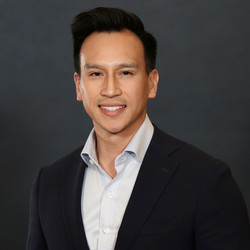 Richard Tran is the Vice President of Research at Acuitive Technologies, Inc., and serves as an Adjunct Assistant Professor at Northwestern University. He received his BS in Bioinformatics from Baylor University and earned his Ph.D. in Biomedical Engineering from the University of Texas Southwestern. In 2015, he completed a postdoctoral fellowship at the Pennsylvania State University focusing on developing citrate-based technologies for various regenerative engineering applications, licensed by Acuitive Technologies, Inc. At Acuitive Technologies, he is closely involved in developing regulatory-compliant manufacturing processes. He leads exploratory research teams to characterize the biological performance of novel citrate-based formulations for orthopedic applications. As a technical expert, he interacts with regulatory bodies and strategic partners to translate and commercialize citrate-based technologies. In 2022, he was part of a team that was awarded the Technology Innovation and Development Award by the Society for Biomaterials.
Richard Tran is the Vice President of Research at Acuitive Technologies, Inc., and serves as an Adjunct Assistant Professor at Northwestern University. He received his BS in Bioinformatics from Baylor University and earned his Ph.D. in Biomedical Engineering from the University of Texas Southwestern. In 2015, he completed a postdoctoral fellowship at the Pennsylvania State University focusing on developing citrate-based technologies for various regenerative engineering applications, licensed by Acuitive Technologies, Inc. At Acuitive Technologies, he is closely involved in developing regulatory-compliant manufacturing processes. He leads exploratory research teams to characterize the biological performance of novel citrate-based formulations for orthopedic applications. As a technical expert, he interacts with regulatory bodies and strategic partners to translate and commercialize citrate-based technologies. In 2022, he was part of a team that was awarded the Technology Innovation and Development Award by the Society for Biomaterials.
Sponsors:
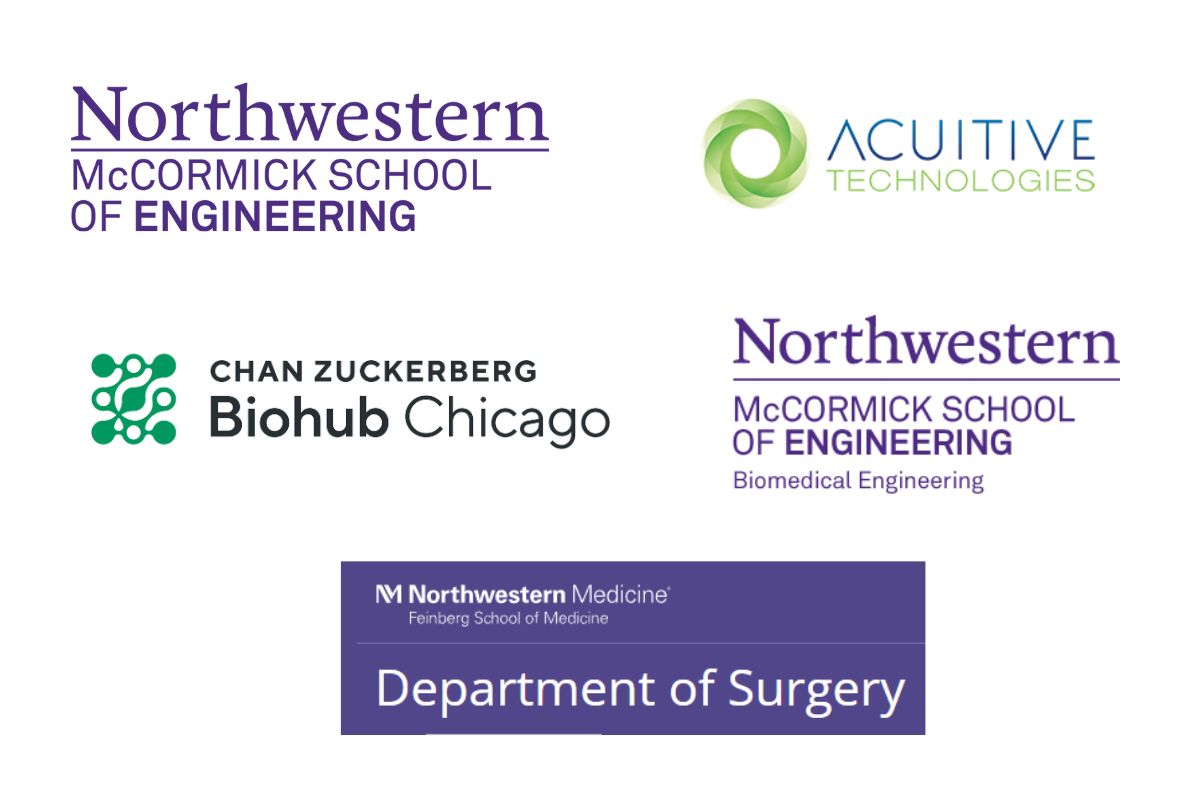
Past Symposia
Second Symposium on Regenerative Engineering
Thursday, May 19, 2022
Location: Simpson Querrey Auditorium and Atrium
303 East Superior Street, 1-230, Chicago, IL, 60611
The Center for Advanced Regenerative Engineering (CARE) is proud to share the success of its 2nd Regenerative Engineering Symposium, which took place at the Simpson-Querrey Auditorium on the Chicago campus on May 19th, 2022. We thank all participants and attendees for making the symposium a great educational and networking event. The day kicked off with opening remarks by Guillermo Ameer (Director, CARE), Julio Ottino (Dean, McCormick School of Engineering), and Samuel Stupp (Director, Simpson Querrey Institute).
Five internationally recognized speakers, including members of the National Academy of Medicine, Engineering and Sciences, whose expertise spanned musculoskeletal tissue regeneration, wound healing, biomaterials, 3-D printing, and commercialization complemented one another in the broader discussion of the convergence of engineering, life sciences, and translational medicine. Cato Laurencin (University of Connecticut) discussed his team's work in the newest technologies in regenerative engineering, including nanotechnology, limb regeneration, and a new class of stem cells: the Synthetic Artificial Stem Cell. Ramille Shah (University of Illinois at Chicago) shared her research in developing biomaterial inks that optimize functionality of 3D-printed custom implants, as well as her experience in taking her research through entrepreneurship into her startup company, Dimension Inx. Michael Sefton (University of Toronto) presented his team's work focusing on methacrylic acid (MAA) rich biomaterials that promote an increase in vascularization as well as nerve regeneration in tissue without exogenous stem cells or growth factors. Tatiana Segura (Duke University) introduced the audience to building blocks composed of hydrogel microparticles: microporous annealed particles (MAP) scaffolds. As granular materials, MAP scaffolds are uniquely suited for tissue regeneration due to the variety of scaffold microarchitectures and form factors that can be generated. Finally, Dave Washburn (Acuitive Technologies) shared his extensive experience in translating academic research into successful commercial products, sharing strategy and common factors that should be considered.
A highlight of the day was the integration of student presentations in oral and poster formats. The inaugural predoctoral student cohort of CARE's Regenerative Engineering Training Program (RE-Training) – funded by the National Institute of Biomedical Imaging and Bioengineering – as well as 4 teams from CARE's undergraduate club, the Competition for Undergraduate Regenerative Engineering (CURE) presented their research from the podium. The CURE team project of title “Bioactive Hydrogels with Copper Release to Accelerate Diabetic Wound Healing” took the 1st place. A total of 20 posters participated in the symposium and technologies from research laboratories were showcased. These activities, the wonderful speakers, and a lively reception contributed to an engaging day of networking and education in the field of regenerative engineering.

Conference Schedule:
| 7:30 AM – 8:30 AM | Registration and Breakfast |
| 8:30 AM – 9:00 AM | Opening Remarks: Guillermo Ameer, Julio Ottino, Samuel Stupp |
| 9:00 AM – 9:45 AM | Speaker: Cato Laurencin |
| 9:45 AM – 10:05 AM | RE-Training Rapid Fire Presentations |
| 10:05 AM – 10:50 AM | Speaker: Ramille Shah |
| 10:50 AM – 11:05 AM | Break, Poster Viewing, Research Lab Tech Showcase |
| 11:05 AM – 11:50 AM | Speaker: Laura Niklason |
| 11:50 AM – 12:05 PM | CURE Competition Presentations |
| 12:05 PM – 1:15 PM | Lunch and Poster Presentations |
| 1:15 PM – 2:00 PM | Speaker: Michael Sefton |
| 2:00 PM – 2:20 PM | RE-Training Rapid Fire Presentations |
| 2:20 PM – 3:05 PM | Speaker: Tatiana Segura |
| 3:05 PM - 3:20 PM | Break, Poster Viewing, Research Lab Tech Showcase |
| 3:20 PM – 4:05 PM | Speaker: Dave Washburn |
| 4:05 PM – 4:20 PM | CURE Competition Presentations |
| 4:20 PM – 4:50 PM | Panel Discussion with Speakers |
| 4:50 PM – 5:00 PM | Closing Remarks and CURE Awards Presentation |
| 5:00 PM – 6:00 PM | Reception and Poster Viewing |
